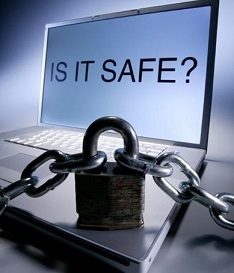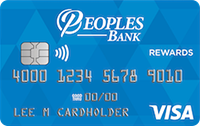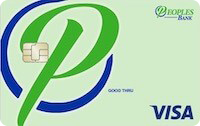Posted On: March 18, 2016 by Peoples Bank in: Security

7 Ways to Keep Your Money Safe Online
Shopping online is so much easier than fighting traffic, finding a parking spot and navigating crowds. But if you’re not careful, you run the risk of falling victim to cybertheft anytime you go online.
Here are seven ways to prevent online thieves from stealing your identity:
Update your anti-virus software: New viruses and malware pop up virtually daily, so it’s important to keep the safety measures on your computer, phone and tablet up to date.
Shop securely: There’s no such thing as 100% online security, but you can shop much more safely if the site you’re visiting shows a padlock symbol in your browser bar and its URL starts with “https” instead of “http.”
Safeguard your personal information: Never answer an email asking you to reply with your passwords, credit card numbers or Social Security information.
Log out: This is especially important if you’re using a shared public computer, but even if you’re on your own phone, tablet or laptop, log out of social media, shopping and banking sites and apps when you’re done.
Many financial institutions, including People’s Trust and Savings Bank, offer convenient apps, but log out of your accounts as soon as you’re done using them. Typing your password each time may be inconvenient, but it’s not as inconvenient as an emptied bank account.
Check up on yourself: At least once a month (and preferably more often) review your checking account transactions online to ensure there aren’t any unfamiliar or fraudulent charges. If you see something amiss, notify your bank immediately, so it can lock down your account.
Protect your passwords: Not only should you keep your passwords under lock and key, you should change them every three to six months. Don’t use easy guesses like your birthday or your spouse’s name, and always use a combination of uppercase and lowercase letters, interspersed with numerals.
Use credit, not debit, online: Nobody wants to rack up credit card debt, but if you get caught up in a data breach, it’s more convenient to dispute credit card charges than to wait for funds to be returned to the account associated with your debit card.
By law, the most your credit card company can hold you liable for is $50. But with a debit card, you could be out $500 (or more) if you wait more than two business days to report fraud once you discover it. And if you don’t report a debit card theft within 60 days from your statement date, you could be out all the money that was stolen.
All of these measures require a little work on your part, but recovering from identity theft is a long and arduous process. A couple of minutes now could save you months of aggravation and a significant amount of money later.
Judy McGuire, NerdWallet
© Copyright 2016 NerdWallet, Inc. All Rights Reserved




